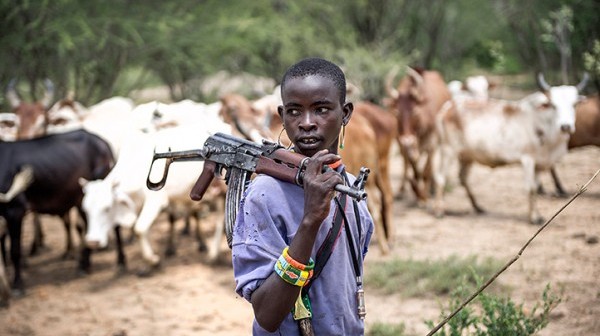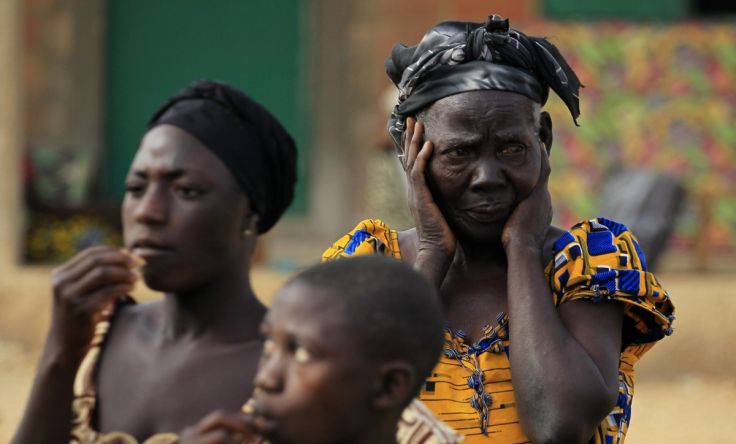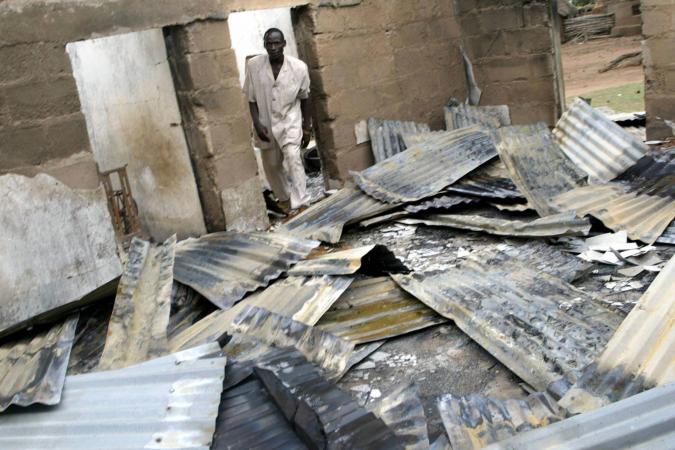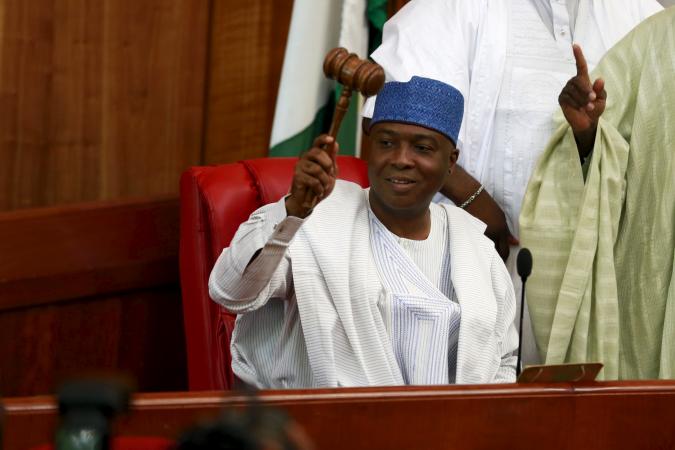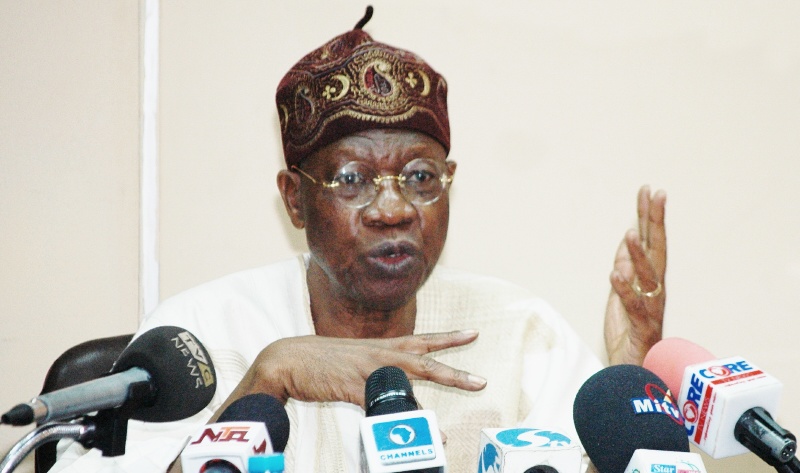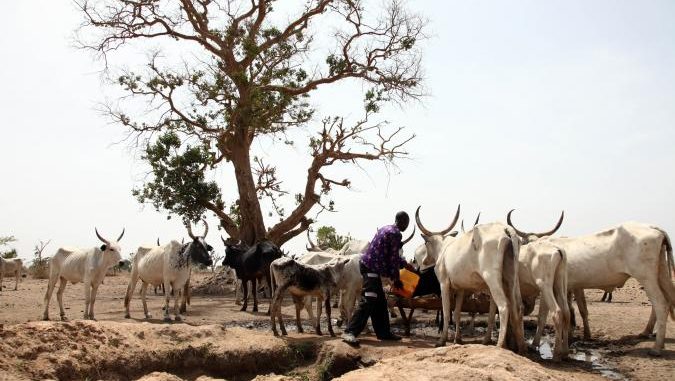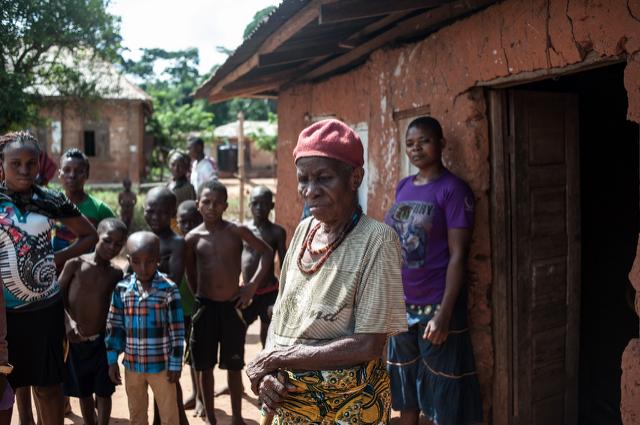
Nsukka (Nigeria) (AFP) – The Fulani herdsmen attacked at 6:00 am, just after morning prayers in Nimbo, an idyllic village in southeast Nigeria where farmers grow yams and pawpaws.
At first the villagers thought it was a joke. The nomadic cattle rearers, who have clashed with farmers over grazing rights in central Nigeria for decades, had never come this far south.
But then they saw 20 young men descend from the hills and emerge from the palm tree forest, shooting AK-47 assault rifles in the air and waving machetes.
“We started hearing the sound of gunshots everywhere. They shot so many people,” Kingsley Oneyebuchie, a 31-year-old civil servant, told AFP.
“They shot one of my brothers, they used a knife on my dad, they killed so many,” he said from his hospital bed in the nearby town of Nsukka, bare-chested and wearing only red athletic shorts.
Oneyebuchie ran his fingers tentatively over a 20-centimetre (eight-inch) track of blue surgical stitches at the base of his scalp.
“They used machete on me. After using machete on me, they thought that I died,” he said.
Oneyebuchie was lucky to survive the attack on April 25. At least 10 people are thought to have been killed and scores of others injured.
– Ethnic lines –
In the past year, raids by Fulani herdsmen have increased in the southeast.
The worst happened some 200 kilometres (125 miles) away in Agatu, Benue state, in late February, where hundreds of people — most of them Christian farmers — were reportedly killed.
The bloodshed mirrors that after Nigeria gained independence in 1960, when Igbos dominant in the mainly Christian southeast, were pitted against Hausa and Fulani in the largely Muslim north.
The ethnic violence led to two military coups, hundreds of deaths — and ultimately a civil war, when the southeast broke away and declared an independent Republic of Biafra in 1967.
Some one million Igbos died either fighting for the fledgling nation or from starvation and disease in a brutal conflict that by its end in 1970 left the southeast broken.
Now, stricken villagers maintain the only solution to the Fulani attacks — and perceived northern domination of political posts from the president downwards — is an independent state.
“We need to know that this is Igbo and this is Fulani,” said Oneyebuchie. “We want them to leave our place so that we will be free.”
– Growing conflict –
According to the Global Terrorism Index 2015 report, “Fulani militants” killed 1,229 people in 2014 — up from 63 in 2013 — making them the “fourth most deadly terrorist group” in the world.
Most deaths happened in Nigeria’s religiously mixed so-called Middle Belt states.
But the apparent migration south into Igbo territory is being used by an increasingly hardline pro-Biafra movement as an indication the Nigerian government doesn’t serve or protect the region and is stoking discontent in the southeast.
Nigeria’s President Muhammadu Buhari, a northern Hausa-Fulani who opposes the pro-Biafran movement, took until late April to speak out about the herdsmen, saying he had ordered military and police to “take all necessary action to stop the carnage”.
He has proposed setting up a grazing plan that includes the establishment of cattle ranches and importing grass feed from Brazil.
Critics argue his response is too little, too late and overly ambitious.
“I have yet to hear this government articulate a firm policy of non-tolerance for the serial massacres,” Nobel laureate Wole Soyinka said recently, describing the ranch plan as “optimistic”.
– ‘A second genocide’ –
The arrest and detention of Indigenous People of Biafra (IPOB) leader Nnamdi Kanu last year catapulted him and his more hardline pressure group into the mainstream.
“Buhari has authorised a second genocide on Biafra,” IPOB, which has been campaigning for Kanu’s release through public protests, said about the herdsmen.
“Biafrans are on the verge of being exterminated,” it added.
In Nimbo, the farmers use less emotive language but their underlying message is the same.
Today the village is deserted, with shiny new padlocks fastened on the wood doors of mud-brick houses and hectares of cassava and melon crops abandoned until safer times.
“We have been complaining to government, complaining to everyone, no help,” said Thaddeus Okenwa, a 65-year-old cassava farmer with a raspy voice and muscular hands.
“We are now just managing because nothing goes normal. If they can give us our own independence, let’s go.
“We don’t pray for war now, but this (the Fulani issue) can cause it because you can’t be a stranger in your home.”

